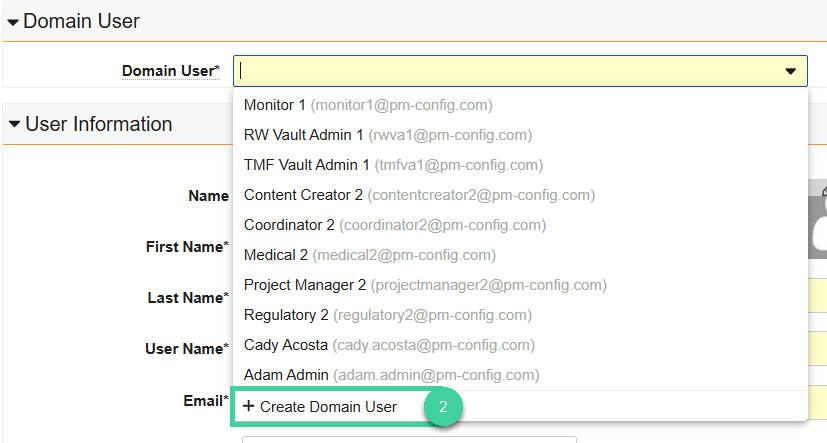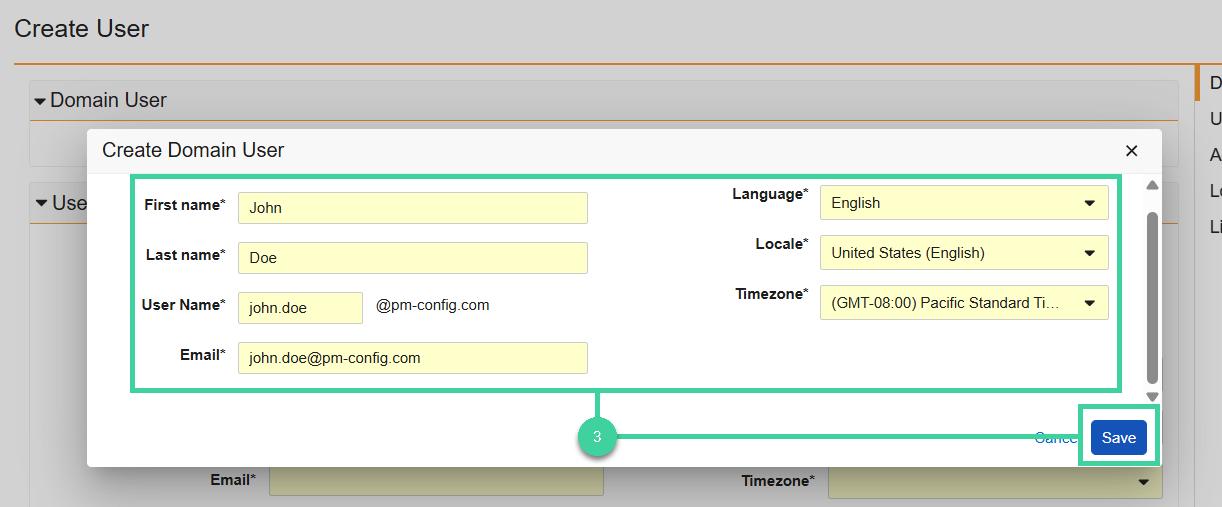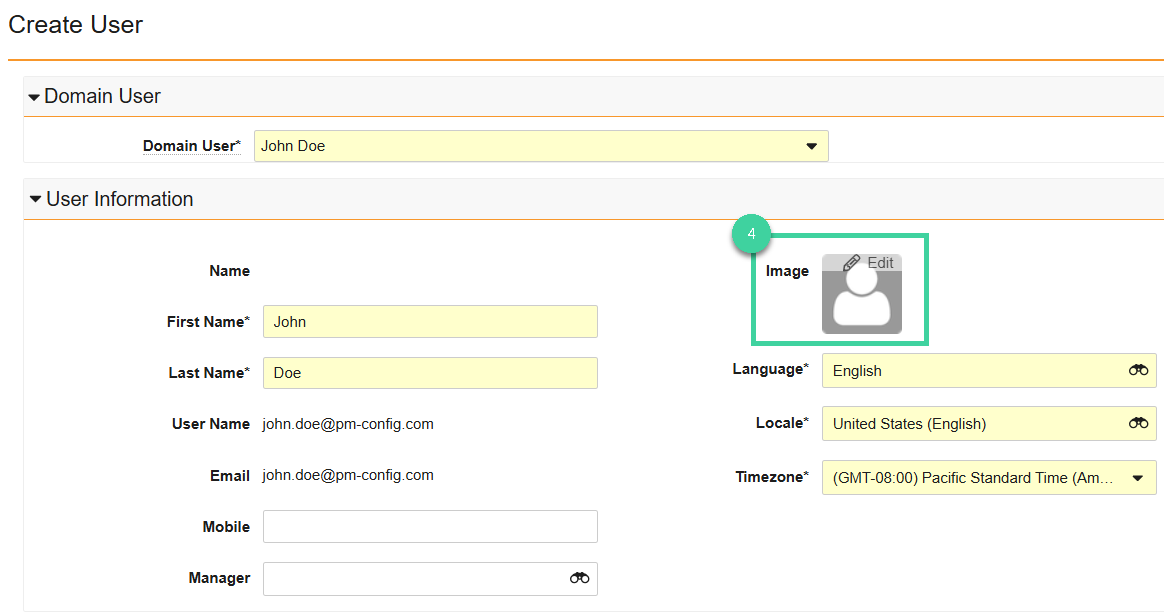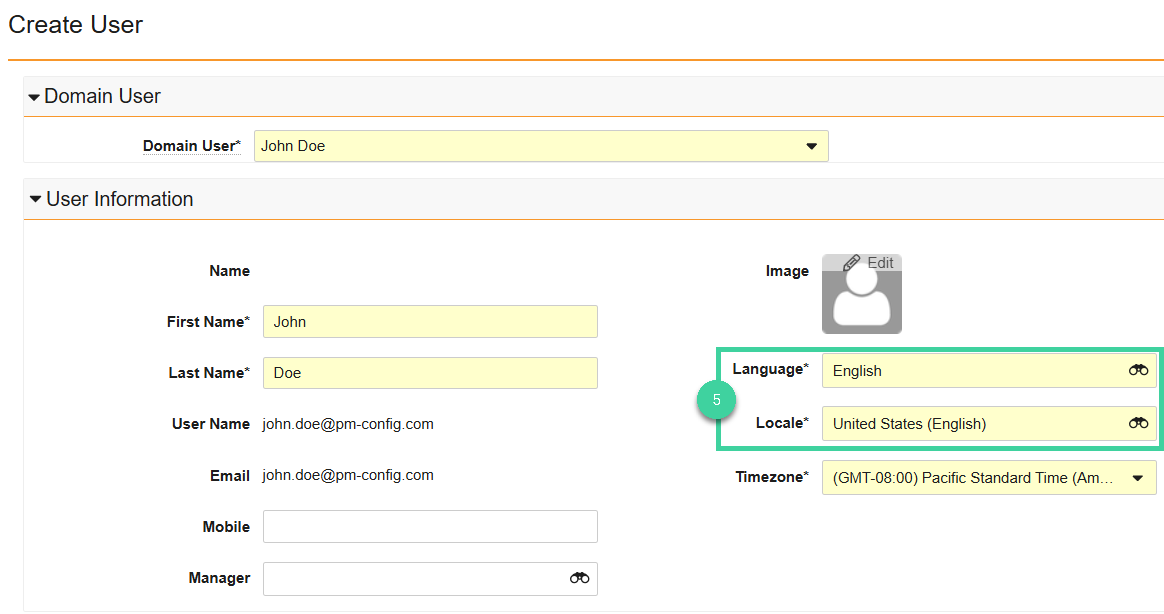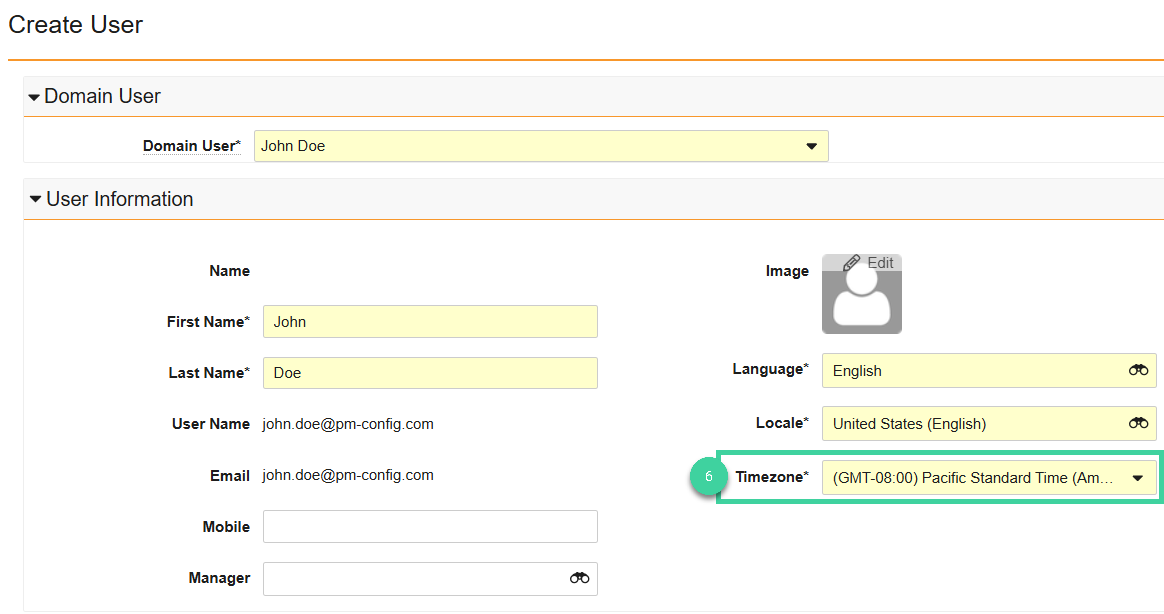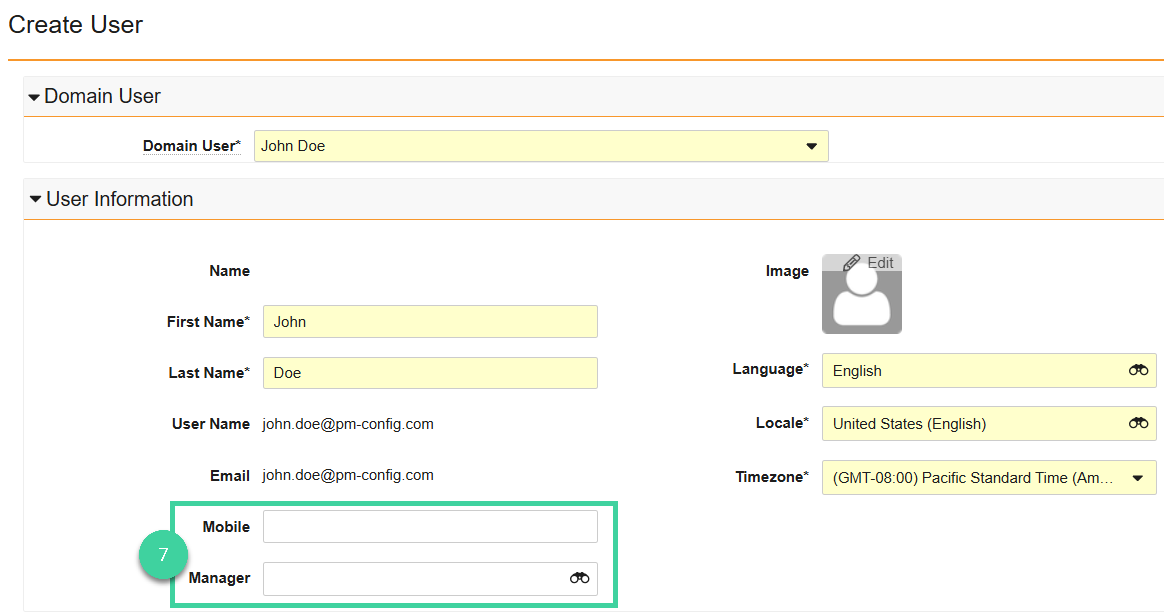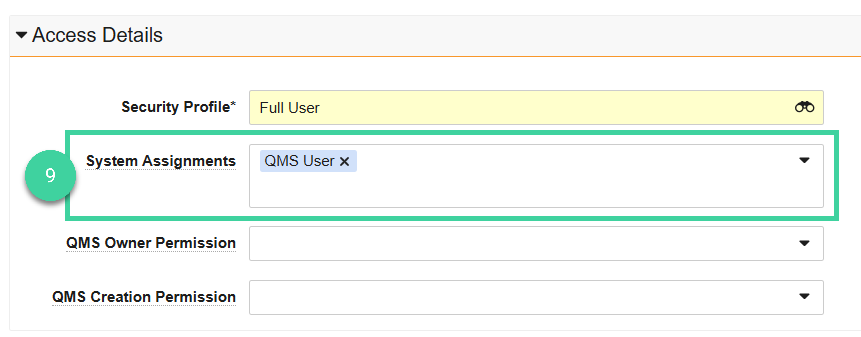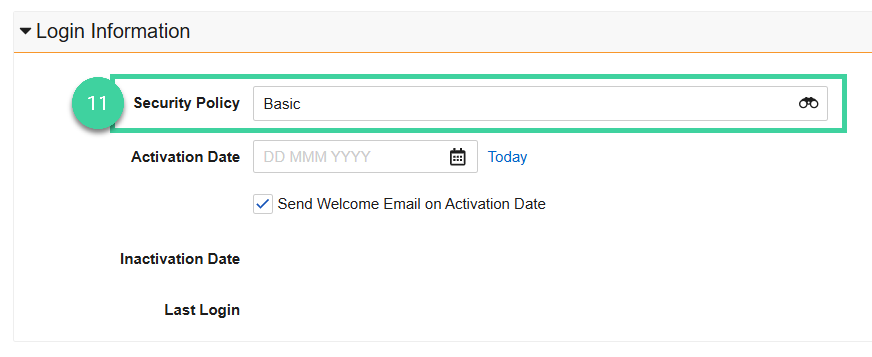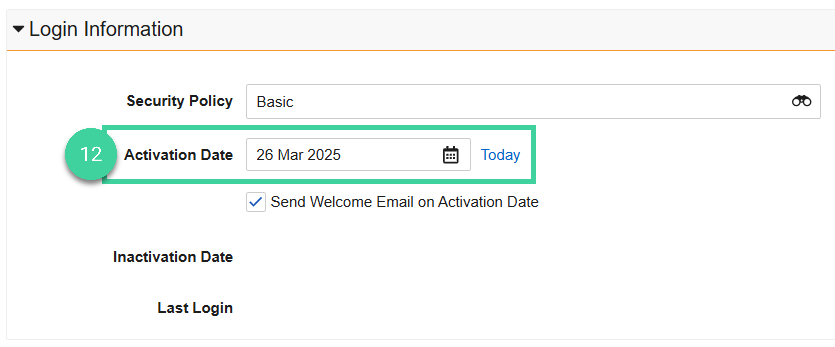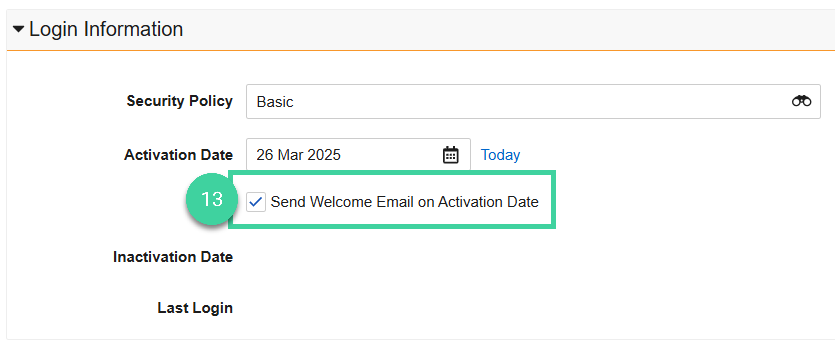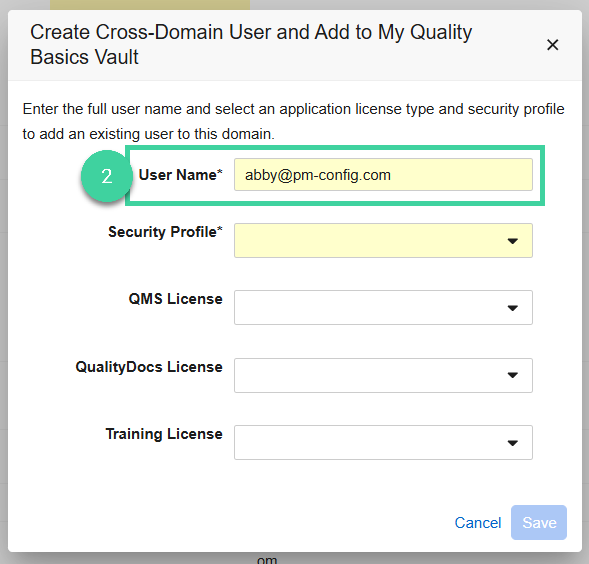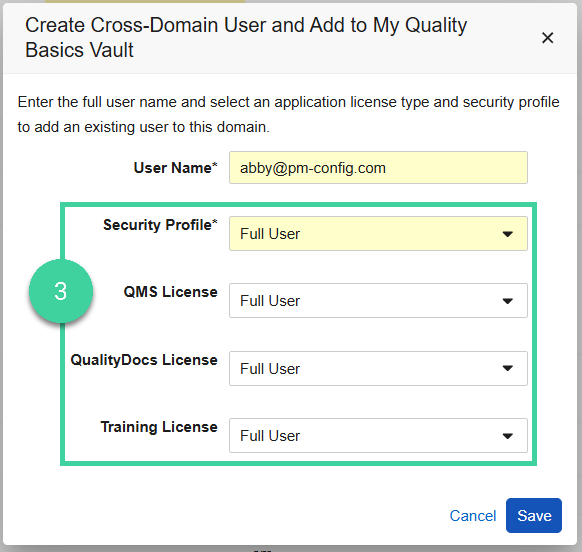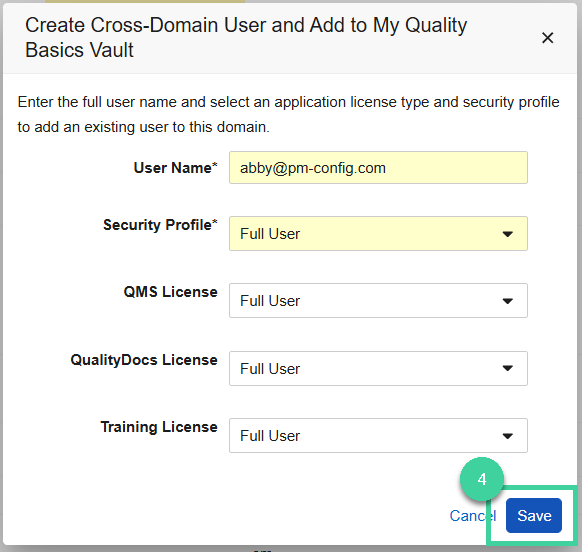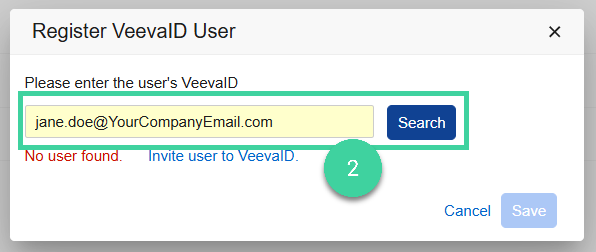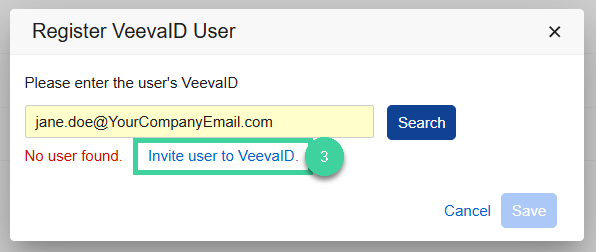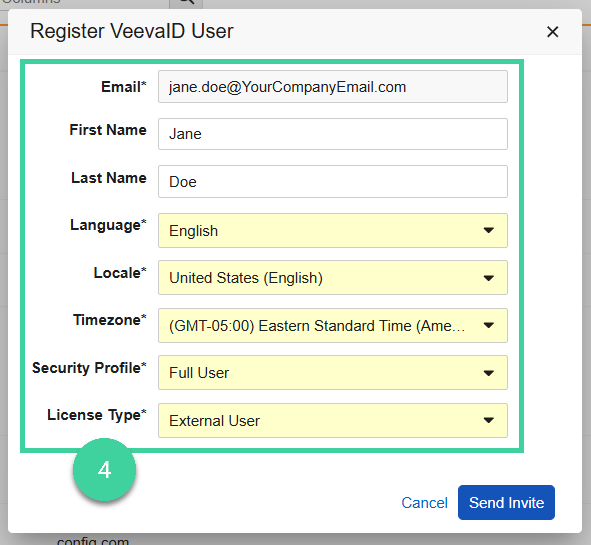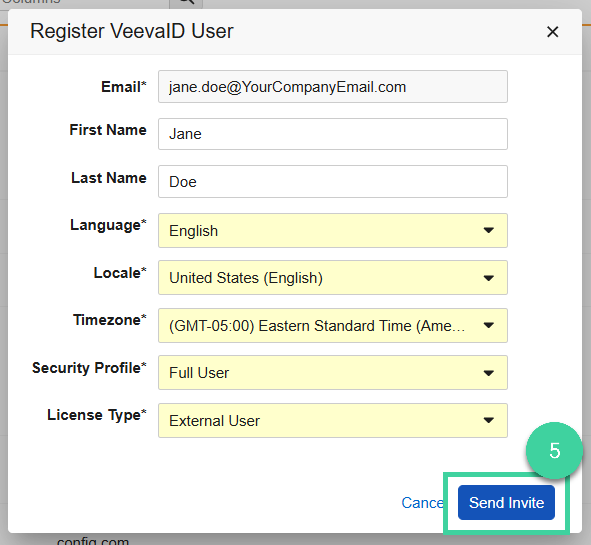- Quality Basics: Vault Admin
Domain User
To create a Domain User:
-
Navigate to Admin > Users & Groups, and click Create.
-
On the Create User page, select Create Domain User from the Domain User drop-down. If a user record for one of your users already exists in one of your other domains, such as Clinical Basics or RIM Basics, you can select that existing user to automatically populate some of the user’s information.
- In the Create Domain User dialog, enter the user’s First Name, Last Name, User Name, and Email, then click Save to create the Domain User.
- Optional: change Language, Locale, and Timezone.
-
Optional: Click Edit in the Image field, upload an image to use for the user’s record, and click OK.
-
Select a Language and Locale for the user. These options control localization options for the user, such as number and date formats and label language, and will populate based on the settings of the same name in the Domain User record.
-
Select a Timezone for the user. Vault stores time and date information in UTC (Coordinated Universal Time) but displays that information to users in their local time zones.
-
Optional: Enter the user’s Mobile phone number and select their Manager. The selected Manager can complete Verification tasks for the user’s training assignments and monitor their training progress on the My Team tab.
-
Select the user’s Security Profile.
-
Select the appropriate System Assignments.
-
If you selected the QMS User system assignment, select the appropriate QMS Owner Permissions and QMS Creator Permissions.
-
Select a Security Policy. Vault requires all new users not using SSO (Single Sign-On) to update their password the first time they log in. If your organization uses SSO, select SSO in the dropdown and enter the user’s Federated ID to associate the user record with the user ID used for SSO.
-
Select the Activation Date if you want the account to become active at a later date, otherwise click Today.
-
Ensure that Send Welcome Email on Activation Date is checked if you want the user to receive a welcome email.
-
Click Save. New users are active immediately unless you select a later activation date.
Cross-Domain User
Note: If you are using cross-domain users for the purpose of linking a user’s production user with their sandbox user, first create the user in your production environment. Then create the user as a cross-domain user in your sandbox environment.
To create a Cross-Domain User:
-
Navigate to the Admin > Users & Groups tab and select Create Cross Domain User from the All Actions menu.
-
In the Create Cross Domain User dialog, enter the full User Name of the existing user.
-
Select the Security Profile and Application Licenses.
-
Click Save to save the Cross-Domain User information. Vault automatically populates the remaining required profile fields based on the existing user information from the home domain.
VeevaID User
To create a VeevaID User:
-
Navigate to the Admin > Users & Groups tab and select Register VeevaID User from the All Actions menu.
-
In the Register VeevaID User dialog, enter the user’s email address and click Search.
-
Click Invite User to VeevaID.
-
Enter the user’s details.
-
Click Send Invite. Vault sends an email to the user to complete the registration process. You will receive an email notification when the user has completed their registration.

